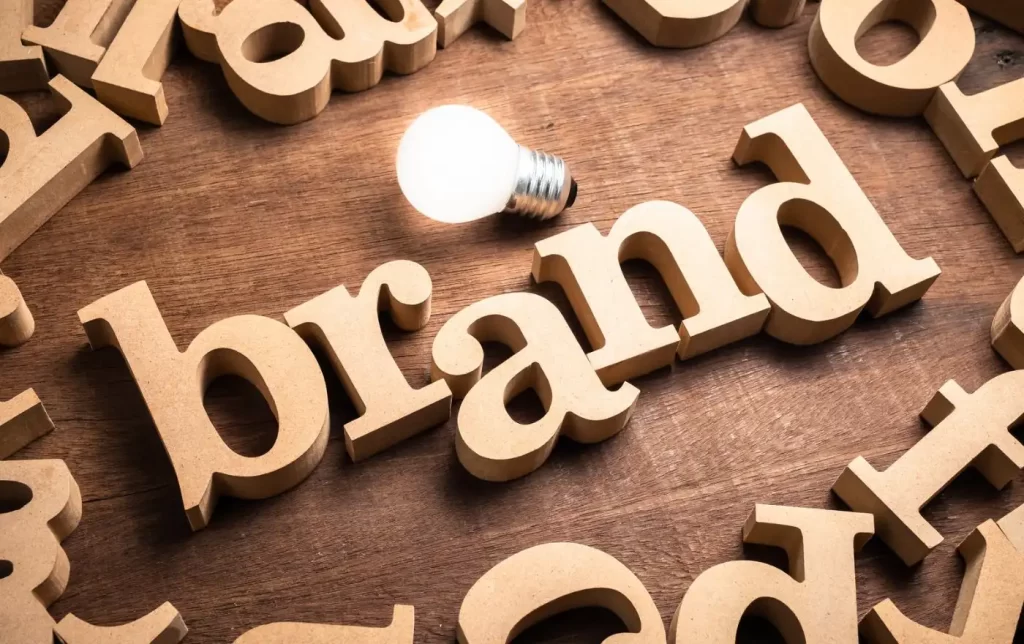Communication Skills In the age of instant information and digital connectivity, public forums have become crucial for discussing ideas, sharing opinions, and addressing concerns. Whether it’s a political debate, a corporate Q&A, or a community meeting, individuals often find themselves confronted with tough questions that require careful navigation. The challenge lies in balancing honesty and diplomacy—a delicate act that can influence perceptions, shape reputations, and impact outcomes.
Table of Contents
Understanding the Importance of Honesty and Diplomacy – Mandatory Communication Skills
Honesty and diplomacy are not mutually exclusive; rather, they are complementary skills that, when combined effectively, can build trust and foster constructive dialogue. Being honest involves expressing truths and opinions transparently, while diplomacy requires sensitivity to others’ perspectives and the ability to communicate in a way that maintains relationships and encourages positive interactions.
In public forums, where diverse audiences scrutinize every word, the stakes are high. An honest response that lacks diplomacy can come off as harsh or insensitive, potentially alienating the audience. Conversely, a diplomatic answer devoid of honesty can appear evasive or insincere, damaging credibility. Therefore, striking the right balance is essential.

Communication Skills – Techniques for Balancing Honesty and Diplomacy
- Active Listening and Understanding:
Before responding to a tough question, it’s crucial to fully understand the context and underlying concerns. Active listening involves paying close attention to the questioner, acknowledging their perspectives, and clarifying any ambiguities. This approach not only demonstrates respect but also allows for a more informed and thoughtful response. - Crafting Thoughtful Responses:
When formulating an answer, it’s important to pause and reflect. Consider the core message you wish to convey and how it aligns with your values or organizational goals. Avoid rushing into a response that might be misinterpreted or misaligned with your intentions. Thoughtful responses are more likely to be perceived as both honest and diplomatic. - Balancing Truth with Tact:
While honesty is vital, it’s equally important to consider the impact of your words. A tactful approach involves choosing language that is respectful and considerate. For example, instead of bluntly stating a negative fact, frame it in a way that acknowledges challenges while highlighting steps being taken to address them. This technique helps in preserving relationships and maintaining a constructive atmosphere. - Acknowledging Limitations and Uncertainties:
In situations where answers are not straightforward or information is limited, it’s acceptable to acknowledge these limitations. Being transparent about what you do not know or what is still in progress can enhance credibility. Pairing this honesty with a commitment to follow up or provide updates demonstrates accountability and a willingness to engage. - Empathy and Emotional Intelligence:
Empathy plays a crucial role in understanding audience sentiments and adjusting communication accordingly. Demonstrating empathy involves recognizing emotions and responding with compassion and understanding. This approach can soften difficult messages and foster a more receptive audience. - Practicing Self-Awareness:
Understanding your own communication style and potential biases is essential in managing public interactions. Self-awareness allows you to recognize when you might be overly blunt or, conversely, too cautious. By being mindful of these tendencies, you can consciously adjust your approach to maintain the balance between honesty and diplomacy.
The Role of Preparation and Adaptability – Key Communication Skills
Preparation is key to successfully navigating tough questions. Anticipating potential queries and considering various response strategies can provide a foundation of confidence. However, adaptability is equally important. Public forums are dynamic, and the ability to adjust your approach in real-time, based on audience reactions or unexpected developments, is a valuable skill.
Overall, balancing honesty and diplomacy in public forums is a nuanced process that requires practice, self-awareness, and a commitment to effective communication. While it may be challenging, mastering this balance can lead to more meaningful interactions and successful outcomes in any public setting.
The Importance of Context in Communication
Understanding the context in which communication takes place is paramount to balancing honesty and diplomacy. Context encompasses various factors, including the cultural background of the audience, the nature of the forum, and the specific circumstances surrounding the interaction. For instance, what might be considered direct and clear communication in one culture could be viewed as rude or confrontational in another. Therefore, being aware of these nuances can help in tailoring responses that respect cultural sensitivities while maintaining integrity.
In addition, the nature of the forum—whether it be a formal press conference, a social media platform, or a community meeting—also dictates the level of formality and the style of communication. For example, a more formal setting may require polished and structured responses, whereas social media interactions might benefit from a more conversational tone. Recognizing these distinctions ensures that communication is relevant and effective.
The Power of Non-Verbal Communication Skills
While verbal communication is crucial, non-verbal cues can significantly influence how messages are received. Body language, facial expressions, and tone of voice can all convey sincerity, empathy, and openness, or conversely, disinterest and rigidity. In public forums, maintaining eye contact, using gestures that convey openness, and adopting a tone that matches the message are essential in reinforcing verbal communication. For instance, a calm and steady tone can help in delivering difficult news without escalating tensions.
Practicing good non-verbal communication not only enhances the message but also builds rapport and trust with the audience. It signals that the speaker is engaged and invested in the interaction, which can be particularly important when addressing sensitive issues or criticisms.
Leveraging Storytelling for Impact – Communication Skills
Incorporating storytelling into responses can be a powerful tool for balancing honesty and diplomacy. Stories have the ability to humanize complex topics, making them more relatable and understandable to the audience. By sharing anecdotes or examples, speakers can illustrate points more vividly and emotionally, fostering a deeper connection with the audience. Moreover, storytelling can serve as a diplomatic means to address contentious issues, allowing the speaker to present perspectives in a non-confrontational manner.
For instance, when discussing the impact of a policy change, sharing a story about how it positively affected an individual or community can be more compelling than presenting statistics alone. This approach not only captures attention but also encourages empathy and understanding among listeners.
The Role of Feedback in Enhancing Communication Skills
Feedback is an invaluable component in refining one’s ability to balance honesty and diplomacy. Seeking feedback from peers, mentors, or even the audience can provide insights into how messages are perceived and where improvements can be made. Constructive criticism helps individuals recognize blind spots in their communication style and develop strategies to address them.
Regularly soliciting feedback also demonstrates openness and a commitment to growth, which can enhance credibility and respect in public forums. It shows that the speaker values the opinions of others and is willing to adapt and improve based on input.
Building a Repertoire of Diplomatic Language – Communication Skills
Developing a personal repertoire of diplomatic language and phrases can facilitate smoother interactions in public forums. This involves identifying and practicing phrases that convey respect, understanding, and transparency without compromising on honesty. For example, using phrases like “I understand your concern,” “Let’s explore this further,” or “What I can share at this moment is…” can help in navigating challenging questions or criticisms.
Having a set of go-to phrases can also reduce the pressure of responding on the spot, allowing for more composed and thoughtful communication. This preparation can be particularly beneficial in high-stakes environments where the margin for error is slim.
In summary, balancing honesty and diplomacy in public forums involves a multifaceted approach that includes understanding context, leveraging non-verbal communication, incorporating storytelling, seeking feedback, and building a repertoire of diplomatic language. Each of these elements contributes to more effective and meaningful interactions, fostering positive relationships and successful communication in diverse settings.
The Influence of Cultural Sensitivity – Important for Communication Skills
An often overlooked element in balancing honesty and diplomacy is cultural sensitivity. Public forums today are increasingly diverse, and being attuned to cultural nuances can greatly affect communication efficacy. Understanding cultural differences in communication styles, such as direct versus indirect communication, can help avoid misunderstandings and offense. For instance, in some cultures, indirect communication is preferred to maintain harmony, while in others, directness is valued for its clarity.
Incorporating cultural awareness into communication strategies involves researching and acknowledging these differences, which can inform how messages are crafted and delivered. This sensitivity not only demonstrates respect but also enhances the speaker’s ability to connect with a wider audience. Additionally, it can prevent potential cultural faux pas that may undermine the credibility and reception of the message.
The Importance of Emotional Intelligence – Communication Skills
Emotional intelligence (EI) plays a pivotal role in balancing honesty and diplomacy. It encompasses the ability to recognize, understand, and manage one’s own emotions, as well as the emotions of others. High EI can enhance communication by allowing individuals to navigate emotional undercurrents in discussions, particularly in public forums where topics can be emotionally charged.
Being emotionally intelligent enables speakers to gauge the emotional responses of their audience and adjust their approach accordingly. This adaptability can defuse tension, foster a more open dialogue, and ensure that messages are received as intended. Moreover, individuals with high EI are often better at delivering honest feedback in a way that is both respectful and constructive, thus maintaining diplomacy even in challenging conversations.

Frequently Asked Questions – About Communication Skills
1. What is the significance of balancing honesty and diplomacy in public forums?
Balancing honesty and diplomacy is crucial in public forums because it helps build trust, maintain relationships, and foster constructive dialogue. Honest communication ensures transparency and credibility, while diplomacy ensures that messages are delivered respectfully and considerately, minimizing misunderstandings and conflicts.
2. How can active listening improve responses to tough questions?
Active listening allows individuals to fully understand the context and underlying concerns of the questioner. By paying attention and acknowledging the perspectives of others, you can formulate responses that are thoughtful and informed, demonstrating respect and improving the overall quality of the interaction.
3. Why is non-verbal communication important in public forums?
Non-verbal communication, such as body language, facial expressions, and tone of voice, can significantly influence how messages are received. These cues reinforce verbal communication, convey sincerity and empathy, and help build rapport with the audience, making the interaction more effective.
4. How does cultural sensitivity impact communication in diverse public forums?
Cultural sensitivity involves understanding and respecting cultural differences in communication styles, which can prevent misunderstandings and offense. Being culturally aware allows speakers to tailor their messages to diverse audiences, enhancing connection and effectiveness in communication.
5. What role does emotional intelligence play in balancing honesty and diplomacy?
Emotional intelligence enables individuals to recognize and manage their emotions and those of others, enhancing communication. It helps in navigating emotional undercurrents, adjusting responses to defuse tension, and delivering honest feedback respectfully, thus maintaining diplomacy even during challenging interactions.
Conclusion – Good Communication Skills
In navigating tough questions in public forums, the ability to balance honesty with diplomacy emerges as a critical skill. By embracing active listening and thoughtful communication, individuals can convey messages with clarity and respect. Preparation and adaptability serve as foundational elements, while cultural sensitivity and emotional intelligence further enhance interaction quality. The integration of non-verbal communication and storytelling can deepen audience connection, ensuring messages are both impactful and relatable.
Ultimately, the art of balancing honesty and diplomacy is about fostering meaningful dialogue and trust, whether in a political debate, corporate Q&A, or community meeting. As public forums continue to evolve with diverse audiences and dynamic environments, mastering this balance will remain essential for effective and positive communication.
Let’s have a one-on-one discussion on this. In case you are interested in learning about freelancing and becoming a freelancer has been a long-awaited wish of yours then visit AboutFreelancing.com
